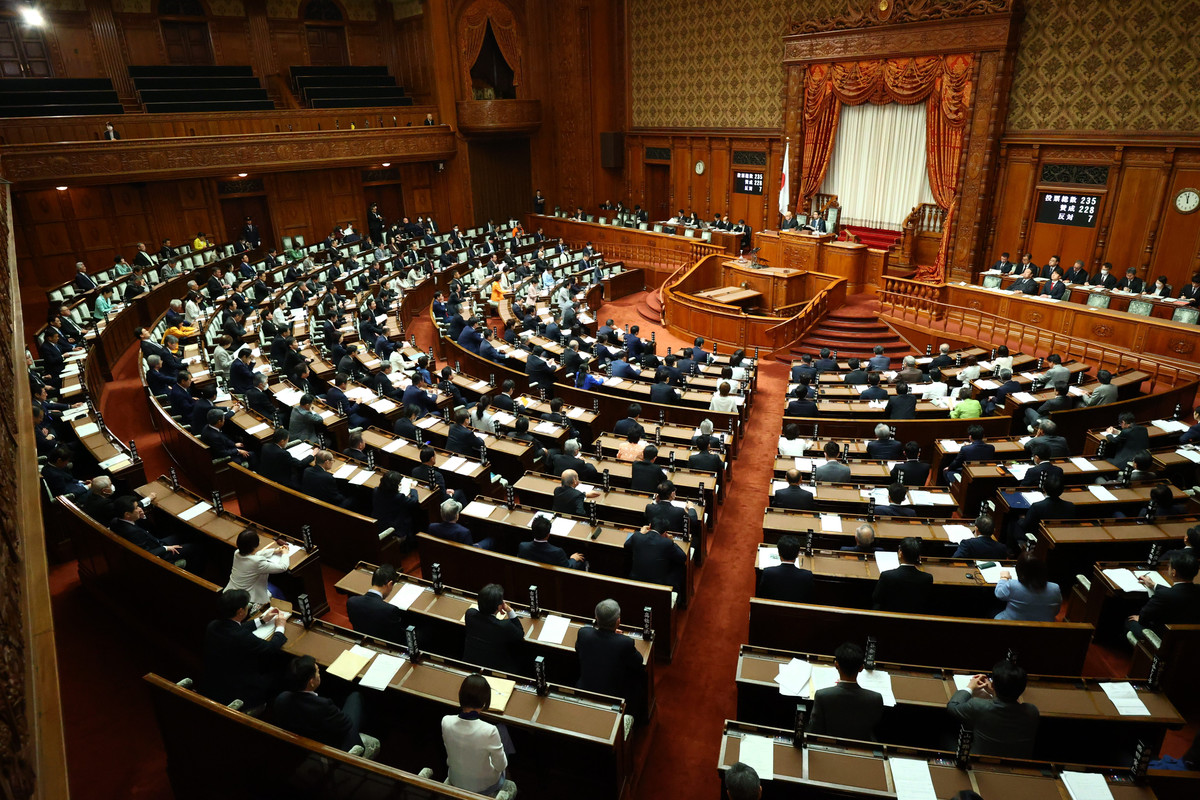
Tokyo (Jiji Press) — While Japan’s Diet has enacted a bill calling for decency in election campaign posters, the country’s efforts to prevent votes falling into chaos are starting to resemble a game of cat and mouse.
On Wednesday, the ruling and opposition camps put aside their differences for now to cooperate in enacting the bill to revise the public offices election law, drafted following the 2024 Tokyo gubernatorial poll, in which many inappropriate posters were seen.
Both sides hope to stop chaos from returning at the Tokyo metropolitan assembly election in June this year and this summer’s vote for the House of Councillors, the upper chamber of the country’s parliament.
While the revised law is expected to bring the poster issue to an end, new problems have popped up one after another.
In recent local elections, candidates with no intention of winning filed their candidacy just so that they could back another candidate. In addition, election-related disinformation and misinformation were rampant on social media.
“We’ll work to make sure that how the law has been revised is known widely to the public,” said Chief Cabinet Secretary Yoshimasa Hayashi.
On the other issues, Hayashi said that all parties are treating them as key items on the agenda, adding that the government will closely watch further developments.
In last summer’s Tokyo gubernatorial election, posters of an almost naked woman and advertisements for adult entertainment businesses were posted on election bulletin boards. The Metropolitan Police Department responded by issuing warnings.
Shortly after the poll, the ruling and opposition camps began discussions to establish a law to ban such posters.
The revised law will prohibit degrading content on election campaign posters. In addition, a fine of up to 1 million yen will be imposed for posters advertising a product or service.
As the amended law will be enforced a month after its promulgation, the upcoming Tokyo assembly election is expected to be held under the new poster regulations.
The revision “is a step in the right direction,” said Mitsunari Okamoto, policy leader at Komeito in the ruling camp.
Still, the environment surrounding elections is changing faster than the Diet can keep up with.
In November last year, disinformation and misinformation, including statements defaming candidates, flooded social media platforms in a gubernatorial election held in Hyogo Prefecture, western Japan.
A candidate threw his hat in the ring just so he could help another candidate secure the governor’s seat, prompting the prefecture’s election committee to ask the central government to strengthen related regulations.
In Tokyo, the ruling and opposition sides started discussions on such emerging issues at the end of last year, but they ran out of time, only managing to add to the revised public offices election law a supplementary provision that further discussions will be held so that necessary measures will be taken.
“We must put our heads together and come up with rule changes,” said Kazuhiko Shigetoku, policy leader of the main opposition Constitutional Democratic Party of Japan.
The issues untouched yet, however, are even more complicated than the poster problem.
Political parties have drawn up suggestions such as clarifying the responsibilities of social media platform operators. The biggest obstacle, however, is whether such proposed measures would infringe on freedom of expression guaranteed under the Constitution.
Many parties are concerned that more candidates may run in an election with the sole purpose of aiding other candidates if there are no regulations in place, but none of the parties have come up with a good idea.
Ryohei Iwatani, secretary-general of Nippon Ishin no Kai (Japan Innovation Party), said, “The biggest problem (with the two issues) is that they make elections far removed from what they should be.”
Still, he highlighted the difficulties in tackling such issues, saying, “Freedom of election activities is an extremely important principle.”

